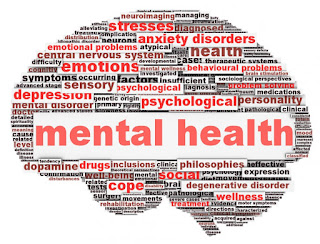Misconceptions of Mental Illness
1. You're either mentally ill or mentally healthy.
Similar to the way a physically healthy person may still experience minor health issues—like bad knees or high cholesterol—a mentally healthy person may experience an emotional problem or two. Mental health is a continuum and people may fall anywhere on the spectrum.
Even if you are doing well, there's a good chance you aren't 100% mentally healthy. In fact, the U.S. Department of Health and Human Services estimates only about 17% of adults are in a state of "optimal" mental health.
2. Mental illness is a sign of weakness.
As someone who trains people to build mental strength, I sometimes receive backlash from individuals who claim the phrase "mental strength" somehow stigmatizes mental illness. Those comments come from people who automatically assume people with depression, anxiety, or other mental health conditions are mentally "weak."
Mental strength is not the same as mental health. Just as someone with diabetes could still be physically strong, someone with depression can still be mentally strong. Many people with mental health issues are incredibly mentally strong. Anyone can make choices to build mental strength, regardless of whether they have a mental health issue.
3. You can't prevent mental health problems.
You certainly can't prevent all mental health problems—factors like genetics and traumatic life events play a role. But everyone can take steps to improve their mental health and prevent further mental illness.
Establishing healthy habits—eating a healthy diet, getting plenty of sleep, participating in regular exercise—can also go a long way to improving how you feel. Similarly, getting rid of destructive mental habits, like engaging in self-pity or ruminating on the past, can also do wonders for your emotional well-being.
4. People with mental illness are violent.
Unfortunately, when the media mentions mental illness, it's often in regard to a headline about a mass shooting or domestic violence incident. Although these headlines frequently portray many violent criminals as being mentally ill, most people with mental health problems aren't violent.
The American Psychological Association reports that only 7.5% of crimes are directly related to symptoms of mental illness.
5. Mental health problems are forever.
Not all mental health problems are curable—schizophrenia, for example, doesn't go away. But most mental health problems are treatable.
The National Alliance on Mental Illness reports that between 70 and 90% of individuals experience symptom relief with a combination of therapy and medication. Complete recovery from a variety of mental health issues is often possible.
Getting Rid of the Mental Health Stigma
Even though suicide is the tenth-leading cause of death in America, most public-service announcements and government education programs focus solely on physical health issues like cancer and obesity. Raising awareness of mental health issues and debunking the most common misconceptions could be instrumental in saving lives.



Comments
Post a Comment